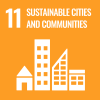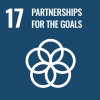IOM Releases Migrant Worker Guidelines for Employers to Promote Ethical Recruitment and Responsible Employment

24 February 2022, Ho Chi Minh City - The International Organization for Migration (IOM) today launched Migrant Worker Guidelines for Employers (the Guidelines) which provide practical guidance for business enterprises on how to recruit and employ international migrant workers ethically and responsibly.
Migrant workers make a valuable contribution to society, in both countries of origin and destination. However, they remain disproportionately vulnerable to exploitation and abuse.
Migrant workers represent almost a quarter of the 25 million victims of forced labour globally, according to the latest available global estimates on modern slavery. They also face additional challenges linked to gender inequalities, heightened discrimination and vulnerabilities during the COVID-19 pandemic.
The Guidelines offer concrete steps employers across various sectors can take to run their businesses in a manner that respects human and labour rights of migrant workers. The Guidelines are primarily for human resources and personnel engaged with migrant workers and can be integrated in existing company policies, procedures and practices.
“Ideally, as a business you strive to create value for your stakeholders and ensure that you operate in a sustainable and responsible way, for the sake of people and planet. This includes creating a respectful and inclusive work environment for all your employees, including migrant workers,” said Dr. Nenette Motus, IOM Regional Director for Asia and the Pacific.
“To support businesses in fulfilling their responsibilities during the recruitment, employment, and return, we have developed the Migrant Worker Guidelines for Employers. The Guidelines provide employers with an overview of the labour migration process, and human and labour rights risks migrant workers face along their journeys, as well as ways how to involve migrant workers in creating sustainable solutions that address and prevent such risks,” she added.
The Guidelines build on the United Nations Guiding Principles on Business and Human Rights (UNGP) and relevant international human rights and labour standards and frameworks on international migration. It has been developed in a collaborative and consultative manner with buyers, employers, migrant workers, civil society, regulators and labour recruiters.
William Gois, Director of the Migrant Forum Asia said, “As we contemplate living with COVID-19, and opening up labour migration corridors, the Migrant Worker Guidelines for Employers will be a critical tool in getting recruitment of migrant workers right. We must build forward better with this know-how.”
William Anderson, Vice President for Social and Environmental Affairs, Global Legal of adidas said, “The United Nations Guiding Principles on Business and Human Rights (UNGPs) ask that companies respect human rights, assess risks and seek effective remedies where adverse impacts are found. The IOM’s Guidelines provide a powerful new tool to help business do just that in addressing the challenges faced by migrant workers over the lifetime of their employment.”
The Guidelines have been developed under IOM's Corporate Responsibility in Eliminating Slavery and Trafficking (CREST), a regional initiative aiming to enhance the protection of the human and labour rights of migrant workers in business operations and international labour supply chains with funding from the Government of Sweden.
The Guidelines in English can be downloaded on IOM’s Publications platform here. Forthcoming versions in Bahasa Malaysia, Chinese, Thai and Vietnamese will be available shortly.
Watch an informational video of the Guidelines here.
For more information about the Guidelines, please contact Anastasia Vynnychenko at avynnychenko@iom.int
For media inquiries, please contact Nguyen Thi Hong Yen at thihnguyen@iom.int
























